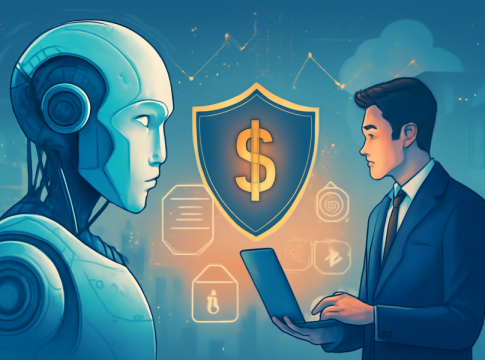Navigating the New Terrain of AI Liability Insurance
As Artificial Intelligence (AI) continues to permeate various business sectors—from customer service to healthcare—companies are facing a unique set of challenges and risks. While AI enhances operational efficiency and decision-making, it also exposes firms to legal and financial vulnerabilities that traditional insurance policies are ill-equipped to cover. Enter AI liability insurance, a burgeoning field designed to insulate businesses from the complexities introduced by AI systems.
The Rise of AI and Its Associated Risks
AI adoption is skyrocketing; studies indicate that by late 2024, over 70% of businesses in industries like finance, healthcare, and retail are leveraging AI tools. Despite its advantages, AI also opens the door to new risks, such as:
- AI Hallucination: Instances where AI generates misleading or incorrect information can lead to erroneous business decisions.
- Model Drift: As data evolves, AI models can lose accuracy, which can result in costly oversights.
- Data Poisoning: Malicious actors may compromise AI training data, prompting harmful system behavior.
Recent developments highlight these risks: for example, regulatory bodies like the Consumer Financial Protection Bureau (CFPB) are insisting on transparency for AI-driven credit decisions, emphasizing fairness and accountability.
The Role of AI Liability Insurance
Recognizing the inadequacies of traditional policies, AI liability insurance has emerged as a vital tool for managing the distinct risks associated with AI. Unlike standard Errors & Omissions (E&O) or Commercial General Liability (CGL) policies, AI liability coverage is tailored to address issues including:
- Failures resulting in financial loss.
- Misleading outputs, such as the aforementioned hallucinations.
- Regulatory fines from bodies like the EU, which is set to introduce stringent rules under the AI Act.
The Benefits of AI Liability Policies
AI liability insurance doesn’t just protect companies financially; it also affords legal defense support amidst intricate regulatory environments. Some key features include:
- Customizable Coverage: Businesses can tailor policies to their specific AI usage and associated risks, whether in healthcare, finance, or content generation.
- Best Practice Requirements: Insurers often demand adherence to risk management strategies, promoting a culture of transparency and safety.
Who Should Consider AI Liability Insurance?
While all organizations employing AI should evaluate their exposure, certain sectors face heightened risks:
- Healthcare: AI tools can significantly impact patient care, making accuracy paramount.
- Finance: Here, automated systems that influence credit decisions could lead to serious legal repercussions if mishandled.
- Transport: As autonomous vehicles gain traction, the need for robust liability coverage will become increasingly critical.
Lessons from Real-World Incidents
Recent cases underscore the necessity for these specialized insurance products:
- A New York lawyer faced penalties after using AI-generated citations from ChatGPT without verifying them.
- Air Canada’s miscommunication through an AI chatbot resulted in a legal dispute over broken promises.
Such incidents illuminate the tangible risks associated with AI, reinforcing why conventional insurance coverage may fall short in these contexts.
Conclusion: The Future of AI Liability Insurance
As AI becomes integral to business, the need for tailored liability insurance is evident. The unique challenges posed by AI demand innovative solutions that go beyond traditional risk management frameworks. For companies across various sectors, adopting AI liability insurance is not merely prudent; it’s a necessity to safeguard operations from financial setbacks, legal troubles, and reputational damage.
In a world increasingly dominated by AI, staying informed and prepared is paramount for ensuring business resilience and upholding ethical standards.

Writes about personal finance, side hustles, gadgets, and tech innovation.
Bio: Priya specializes in making complex financial and tech topics easy to digest, with experience in fintech and consumer reviews.

